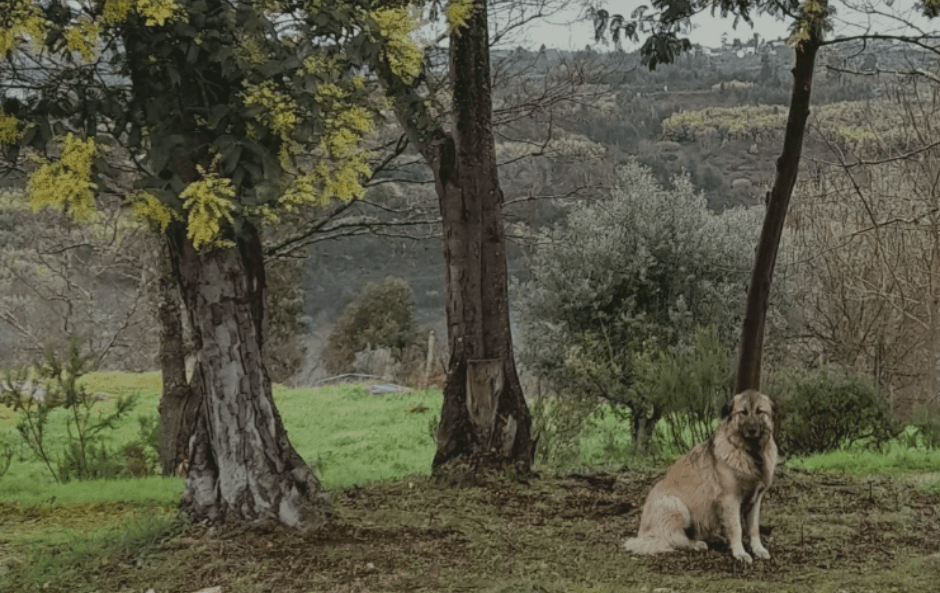For many, living off-grid in Portugal offers a chance to embrace a simpler, more self-sufficient way of life. With its sunny climate, affordable land, and growing off-grid community, it’s no surprise the country has become a hotspot for those looking to break away from conventional living.
In Portugal’s rural countryside you’ll find many people who’ve traded their modern urban lifestyle for one of simplicity and self-sufficiency. Faith is one of them. Seven years ago, she set off on a journey to make her dream of living off-grid a reality. The goal was to drive her campervan to Asia, but she didn’t get that far. After travelling and exploring central Portugal she decided to buy some land and set-up home there! Drawn by the landscape and freedom to create her own path, Faith has built a life based on sustainability.
Living off-grid in Portugal comes with plenty of opportunities, but it also has its challenges. From building your resource systems to adapting to a less structured life, the learning curve can be steep. This article explores the rewards and realities Faith has experienced in choosing an off-grid life in Portugal. Discover what makes Portugal an ideal place to embrace the off-grid lifestyle – and the realities you’ll face if you decide to make the leap.
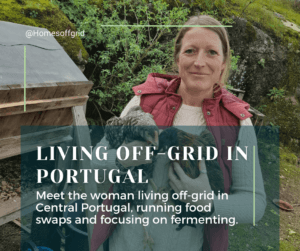
Background and Transition
For as long as she can remember, Faith had dreamed of living off-grid. Personal challenges, including health problems, shaped her journey towards this lifestyle. “I had been chronically ill for a lot of my life and had finally recovered a few years prior to moving off-grid,” she shared. This recovery gave her the opportunity to rethink her life and question conventional routines. She explained, “I did not want to live a life where you just worked for the weekends. I felt disconnected from myself and life often and wished for something different.”
Seven years ago, she set out to drive to Asia in a campervan with her dog. However, a friend suggested stopping in Portugal first – a detour that changed everything. “I did, and I didn’t make it any further than that,” she joked. Exploring central Portugal, they spent time house-sitting and volunteering at off-grid homes and retreat centres. The experience proved invaluable, allowing her to observe how others managed their off-grid setups and gain hands-on experience.
Eventually, she decided to stay and build her life in Portugal. Faith emphasised the importance of these initial steps for others considering the transition to off-grid living: “I would highly recommend that anyone considering living off-grid do this – go stay at an off-grid place, volunteer, or house-sit where you can.”
This approach gave her the chance to learn practical skills and allowed her to ease into the lifestyle with support. For instance, after purchasing her land, she used neighbouring resources while setting up her own. “We were allowed to use their power and water until that was set up on our land.”
The Current Off-Grid Setup
Faith’s journey to living off-grid in Portugal has taken her through various homes, each showcasing her adaptability and resourcefulness. Over the years, she has lived in a cabin, a converted bus, a renovated ruin, and now a beautiful house. Each home has been part of the evolution, providing opportunities to refine off-grid systems for self-sufficiency.
At the heart of her off-grid setup are multiple energy and water sources, which ensure resilience throughout the seasons. Faith explained, “We have 3 energy sources: solar for all the sunny days, wood for the wet, darker days, and gas bottles for the rare days where it’s not practical to use the other two. For this reason, one gas bottle lasts a very long time.” Similarly, they’ve diversified their water sources to adapt to Portugal’s long, hot summers. “We have water from wells and a borehole, and wastewater goes back into the land. Don’t rely on one energy or water source; things can become very challenging then.” Faith advises those considering this lifestyle to seek land with multiple water options or the potential for rainwater harvesting.
Sustainability is central to their way of life. Faith grows around 90% of her fruit and vegetables, taking full advantage of Portugal’s extended growing season. “We also raise many of our own animals, after 33 years of me being a strict vegetarian and sometimes vegan,” she added. Any surplus produce or animal products are traded with neighbours to cover the costs of feeding and sheltering their animals. The garden, animals, and composting system are interconnected in what Faith calls a “beautiful cycle of life.”
Nothing goes to waste in this system. “Human and animal waste and bedding go into a compost system and are used back on the land after 18 months,” she explained. Garden waste is either fed to the chickens or composted. This circular approach feeds their soil, supporting future crops, and reflects her belief that living locally, seasonally, and waste-free benefits both personal and planetary health. “We’re not shipping or ordering things from all over the world. Nothing ever goes to waste.”
Daily Life Off-Grid
Faith’s days follow a rhythm dictated by the seasons and the needs of her land and animals. “Life here is very dependent on the weather and harvesting times. You have to be prepared for all your plans to change at the last minute.”
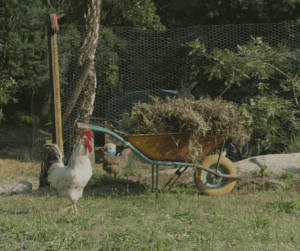
In the warmer months, mornings start early to avoid the heat of the day. “Wake up as it gets light, feed the cats, let the chickens and geese out, water the garden, and walk the dogs,” Faith explained. She prioritises outdoor chores, such as gardening or maintenance, before the intense heat sets in around 11 a.m. Conversely, in the cooler winter months, outdoor tasks are pushed to later in the day when the sun has warmed the air.
Autumn brings a mix of responsibilities, from tidying up the house and garden to harvesting vegetables and preparing for the colder months. Faith often spends afternoons preserving food for herself and local markets. “I ferment lots of drinks and vegetables, pressure can other veggies, or dry them in the dehydrator,” she shared. This seasonal work ensures they remain as self-sufficient as possible while providing surplus produce for trade or sale. “This time of year I have a few hours ‘off’ in the evenings, when I am researching new projects, working online or reading. In the summer months this does not happen as the animals are awake much later as it’s light much later and the garden sometimes needs working in or watering in the evenings (when it’s cooler again) too.”
Unpredictability defines Faith’s off-grid life. “You have to be prepared for all your plans to change at the last minute,” she noted. Whether it’s the sudden need to secure fencing after a neighbour’s dog caused havoc or dropping everything to harvest olives before the weather shifts, flexibility is crucial.
Despite the challenges, she embraces this ever-changing lifestyle. “Every day there is a vague plan of what needs doing, but often this changes depending on the needs of the animals and the land. But, I actually like this, now I am used to it!” Faith’s ability to adapt has become an integral part of her off-grid journey, helping her thrive in a life guided by nature.
Rewards and Challenges of Living Off-Grid in Portugal
Faith’s off-grid lifestyle offers plenty of rewards but inevitably there are also challenges. Living close to nature has allowed her to feel whole, content and connected again. “Learning to live in a much more traditional, natural, seasonal, and nourishing way has shown me that this is how we are consistently happy and healthy human beings,” she explained. By stepping away from societal pressures to “do more, be more, and have more,” Faith has found peace and purpose in simplicity.
The hard work involved in her lifestyle, whether tending to the land or caring for animals, feels meaningful and enriching. “To wake up in the mornings and not know what the day will hold, but know it’ll be hard but rewarding ‘work’ just feels right,” she said.
The challenges require careful consideration and preparation. Faith noted that one of the hardest aspects has been letting go of preconceived notions about how life should be. “The most challenging for me has been to let go of how I think life should be and allow life just to be,” she reflected. Adjusting to the unpredictable nature of off-grid living requires resilience and a willingness to adapt, qualities Faith has cultivated over time.
Despite the unpredictability, Faith’s approach has enabled her to embrace the unexpected. “Living off-grid is a truly beautiful way to live, but it’s harder work than most ‘normal’ jobs and just as nature gives it can also take away just as easily.”
Community and Connection
Community plays a vital role in Faith’s off-grid life. It offers a sense of connection and support that counters the solitude often associated with living in remote areas. Living in the Portuguese countryside, she is surrounded by others who embrace similar lifestyles. “Many people that live in my area of central Portugal are living off-grid in some way or another because it’s very rural here,” she explained. This shared approach has formed a network of like-minded individuals who understand the challenges and rewards of self-sufficiency.
For Faith, this community is about more than proximity – it’s about collaboration and mutual support. “I believe this is very helpful as you can swap skills, food, animals, produce, and thoughts with like-minded people,” she said. One of Faith’s key contributions to this network is the monthly food swap she has organised for the past three years. This initiative promotes resource sharing and skill swapping while bringing people together. “It’s an amazing way to get together, support each other, learn, and swap,” she noted. These gatherings have become a cornerstone of the community, encouraging sustainability and self-reliance while strengthening social bonds. This local network shows how off-grid living doesn’t have to mean going it alone. It can also be a genuinely collaborative experience.
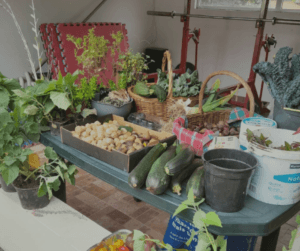
Lessons Learned and Advice
Faith’s off-grid journey in Portugal has provided her with invaluable insights into living sustainably and avoiding the common pitfalls that many new to the lifestyle face. Her key takeaway is the importance of balance and patience. “Don’t try to do it all at once,” she advised. “Pick one big project at a time, and even one vegetable at a time to get good at growing, instead of spreading yourself thin and becoming overwhelmed by it all.”
For those considering this lifestyle, Faith strongly recommends testing the waters first. “Volunteer, house-sit, or land-sit first,” she suggested. “Maybe fully off-grid is not for you, and meeting halfway is? Better to know in advance and not when you are already emotionally and financially committed.” This approach can save significant time, effort, and resources while helping you identify what aspects of off-grid living truly matter to you.
Practicality is also key to success. Faith stresses the importance of selecting climate-suited resources. “It may be tempting to bring seeds, plants, trees, and animals from the country you live in to somewhere like rural Portugal, but I would consider seeds, plants, trees, and animals from here instead,” she explained. Their adaptation to the local climate makes them hardier, less prone to disease, and easier to manage.
Another crucial piece of advice is to ensure resilience in your systems. “Don’t rely on one energy or water source,” she said. Diversifying resources, as she has done with solar, wood, and gas, can safeguard against unexpected challenges and seasonal changes. Faith also encourages off-grid hopefuls to maintain backup ideas and plans to ease the transition.
Finally, she warns against bringing the pace of conventional life into the off-grid world. “The biggest challenge everyone moving off-grid faces is trying to do it all and be it all straight away. It takes time and community to live like this. You’ll just get burnt out if you come at it with the same energy you lived your previous life in.”
Faith’s advice highlights the value of preparation, adaptability, and measured steps, ensuring that those considering off-grid living can thrive without becoming overwhelmed.
Future Aspirations
Faith’s next venture reflects her ongoing commitment to working with the land while embracing new challenges. She plans to introduce Portuguese mountain cows to her property, a move that blends sustainability with practicality. “They are slightly smaller than normal cows. They eat more like goats than cows, and are acclimatised to this region,” she explained. These attributes make them an ideal choice for her terrain, particularly the steeper sections of her land that can be difficult to manage.
Faith is excited about the opportunity to learn new skills and develop a connection with the animals. “They will be about six months old when they arrive, and I can’t wait to learn some new skills whilst getting to know them,” she said. The cows will manage the land and produce raw dairy in the future. This will further enhance the self-sufficiency of her off-grid lifestyle.
Conclusion
Faith’s off-grid life in Portugal showcases a practical and rewarding way of living that balances hard work with meaningful outcomes. Her journey highlights the importance of adaptability, community, and thoughtful planning when transitioning to a self-sufficient lifestyle.
Living off-grid in Portugal isn’t without its challenges, but Faith’s experiences demonstrate that the effort can lead to a fulfilling and sustainable way of life. From managing the daily demands of the land to future plans like introducing mountain cows, her story shows the value of approaching each step with care and intention.
For those considering this path, Faith’s advice is clear: take your time, learn from others, and start small. Whether through volunteering, testing out systems, or connecting with a like-minded community, preparation is key. “Living off-grid is a truly beautiful way to live, but it’s harder work than most ‘normal’ jobs and just as nature gives it can also take away just as easily. It’s a way to live with purpose, to be more patient and to go with the flow and not be so attached to things. I highly recommend it!”
You can follow Faith’s journey and stay updated on her off-grid adventures online through her website, Youtube and social media. By sharing her experiences, she hopes to inspire others to explore this rewarding way of life.
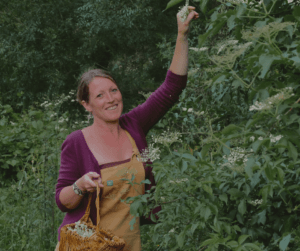
To find out more about off-grid living return to our Reading Room.


